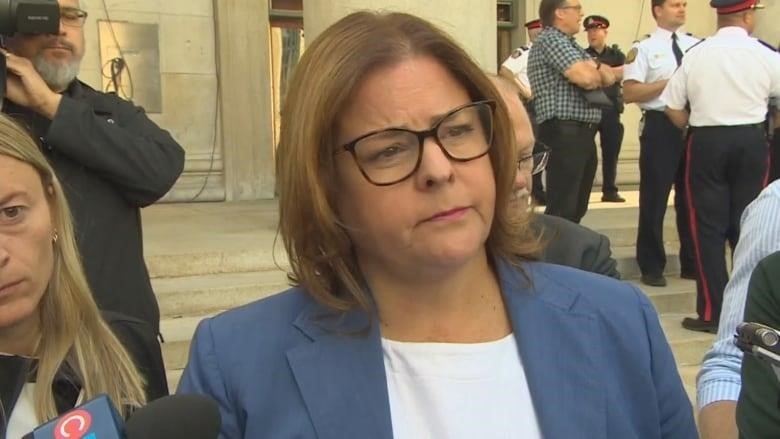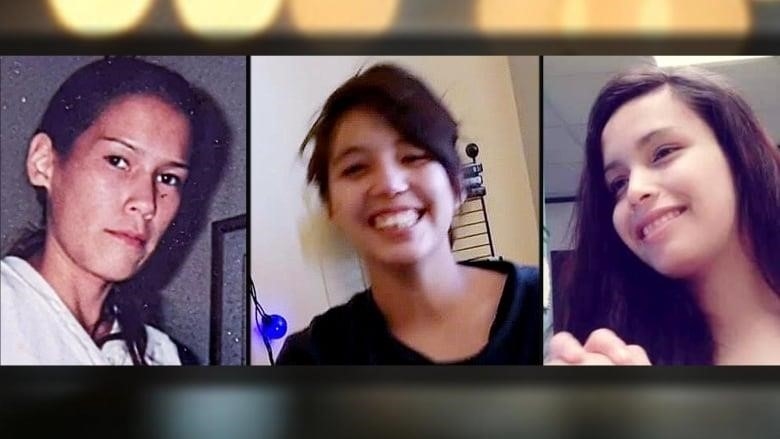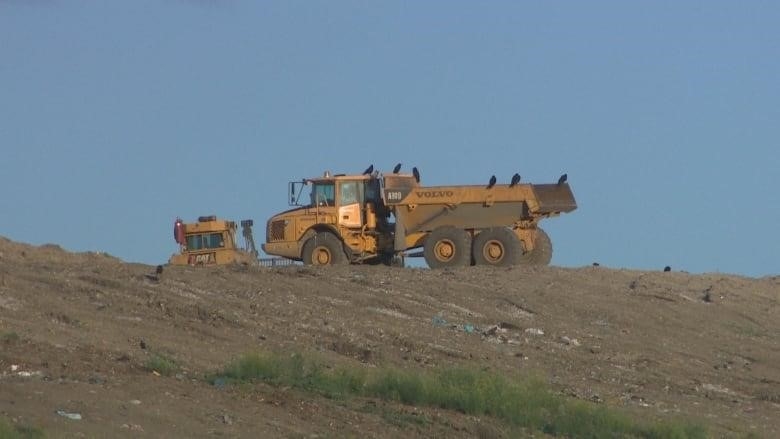
Province said Wednesday that it won’t help look for the bodies of two women, citing safety concerns
Families of two First Nations women whose bodies are thought to be in a landfill near Winnipeg are upset that the Manitoba government won’t pay for a search that could bring their loved ones home.
Cambria Harris said Thursday, “I can’t believe how things went down and how little or no respect was shown.”
Police think that her mother’s body, 39-year-old Morgan Harris, and the body of 26-year-old Marcedes Myran were taken to the privately run Prairie Green landfill north of the city in May 2022.Both women are thought to have been killed by the same person, who is thought to be a serial killer.
Cambria Harris and Melissa Robinson, Morgan’s cousin, said that parts of a meeting with Premier Heather Stefanson and other provincial and First Nations leaders on Wednesday to talk about the search felt like “a slap in the face.”
That included the province saying that it would not help pay for a search for the women’s bodies, but it would support a memorial and help the women’s families heal.
“I got up and walked out in the end,” Robinson said Thursday. “Yesterday I was sad, but today I’m angry.”
Myran’s grandmother, Donna Bartlett, said it hurt her to hear that the premier told her family that the Manitoba government wouldn’t help them search.
Bartlett, who raised her granddaughter for part of her life, said, “If it was her daughter or granddaughter, I’m pretty sure she’d be out there looking right away.””There would be no questions asked.”

Robinson said she still believes the federal government will help pay for a search, but Bartlett is worried that Ottawa will now follow the lead of the Manitoba government.
A spokesperson for federal Crown-Indigenous Relations Minister Marc Miller said that the minister will have more to say about the study after he finishes reading it. The Assembly of Manitoba Chiefs says that it has asked for a response by the end of July.
The decision about the searchers’ safety: premie
Premier Stefanson said again Thursday morning that her government’s decision not to help pay for the search was based solely on safety concerns for the people who would be going through the materials.
“This isn’t about money. It’s about the safety of the people who would be doing the search,” Stefanson told reporters in downtown Winnipeg after a morning news conference that had nothing to do with the situation.
WATCH | The province’s leader explains why the search for a landfill won’t be paid for:
“The report says that the dump is full of toxic waste, which you already know.”
The feasibility report Stefanson was talking about was finished in May. It looked at how to find Harris and Myran’s bodies in the landfill.
A group of First Nations leaders, family members, police officers, and other officials worked together to write the report.
It talked about health and safety concerns with a possible search and suggested that hazardous materials teams should be on-site to monitor air quality, act as safety officers, and clean up people who work closely with evacuated materials.
It also found that a successful search could cost up to $184 million and take up to three years, but that not doing it could cause a lot of trouble for the victims’ families and Indigenous communities across the country.
The report said, though, that there was no guarantee that the women’s bodies would be found.

Stefanson’s comments were the first time she had spoken out in public since the province said in a statement Wednesday afternoon, after meeting with families, that it “cannot knowingly risk the health and safety of Manitoba workers for a search without a guarantee” of finding remains.
Shortly after that announcement, the Grand Chief of the Assembly of Manitoba Chiefs, Cathy Merrick, said that the province’s explanation didn’t make sense because the feasibility report addressed safety concerns.
Thursday, the families of the people who died said they didn’t agree with that explanation.
“I think they know there are more people than just Morgan and Marcedes in that dump,” Robinson said.”How bad will it make our city look once they start digging up things?”
Premier briefed on repor
When asked if she had read the whole 55-page feasibility report, Stefanson said that her staff had gone over it and told her what it said.
“That’s what happens with every report,” she said. “That’s the process it goes through.”
Harris said that the prime minister told family members at the meeting that she had just gotten the report that morning.
“Basically, she read it in a few hours and saw only dollar signs and risks. “And my mom is not a risk,” she said.
Later, a spokesperson for the province said that the province has “thoroughly reviewed” the report, which it got on May 1.
When asked if the premier has read it, the spokesperson said Stefanson knows “the whole report” from “extensive briefings and her own review.”
Looking forward, Stefanson said that the federal government has the final say on whether or not to search for a landfill. If the federal government decides to pay for a search, she would want to talk to them about how they would keep the workers safe.
WWatch Heather Stefanson’s full thoughts on not giving money to the landfill search:
For Harris, finding her mother’s remains is about more than just knowing what happened to her — it’s about finally giving her a home.
“She had been homeless all her life and [was] treated and discarded of like trash … quite literally,” which “breaks my heart,” she said.
The premier said her heart goes out to the families of the victims. The provincial government also said it is continuing to “address the many sources of violence against Indigenous women and girls.”
Jeremy Skibicki is charged with first degree-murder in both Morgan Harris and Marcedes Myran’s deaths, as well as those of 24-year-old Rebecca Contois and a fourth unidentified woman, whom community members have named Mashkode Bizhiki’ikwe, or Buffalo Woman.
Contois’s partial remains were found last year in Winnipeg’s Brady Road landfill. Mashkode Bizhiki’ikwe’s remains have not been found.
Skibicki’s trial is scheduled to begin in April 2024.
